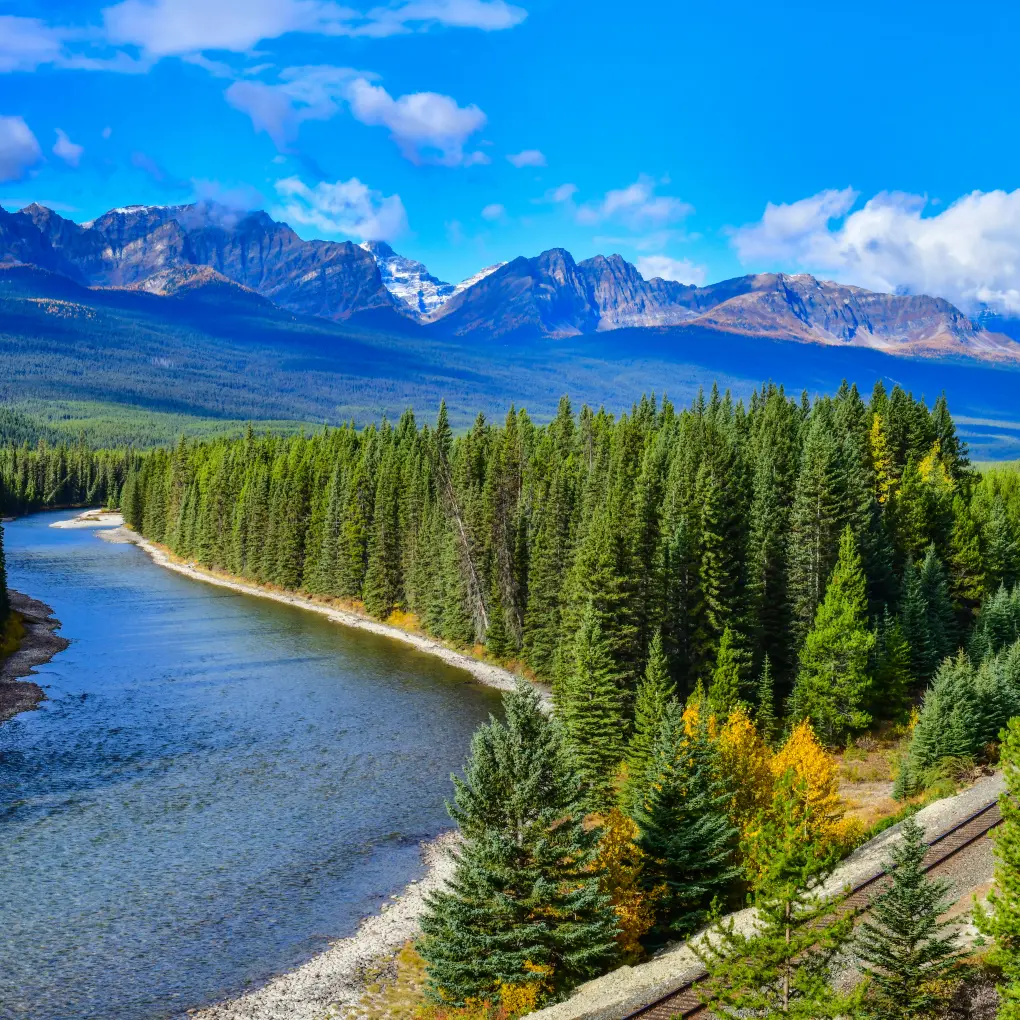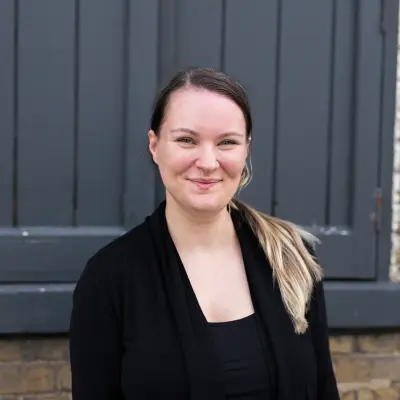There are a few special places in the world that are true, year-round destinations.
Vancouver is one of them.
Each season brings with it a fresh perspective on this vibrant, cosmopolitan city. Whether it's browsing a gallery in fall or hiking a mountain summit in spring, there is always an adventure to embark on. If you're wondering when to visit Vancouver, then take a look at our seasonal round-up.
Spring – April, May, June

Weather:
The weather is warm enough in the city to enjoy a round of golf, while up on the North Shore mountains the ski slopes are open into April. You really can do both in a single day! April is also when the stunning pink cherry blossoms are in full bloom.
Average temperatures are around 12°c to 16°c.
Things to do:
- The ski slopes on Grouse Mountain, Mount Seymour and Cypress Mountain stay open through March and into April. Whistler Blackcomb is just 2 hours north of Vancouver and enjoys some of the best snowfall in the country.
- Bears start to emerge from hibernation around late April, while migrating whales start to congregate in the Strait of Georgia. Tours to see these amazing animals usually start operating from around the 1st May.
- West 22nd Avenue is one of the best places to see the city’s beautiful cherry trees in bloom. Places like Queen Elizabeth Park and Granville Island are hotspots too, but trees are dotted throughout Vancouver.
Pros:
This shoulder season is cheaper than the peak summer months and offers some of the best activities of both summer and winter.
Cons:
Earlier in spring, the weather can still be chilly – particularly if you want to do activities out on the water.
Summer – Jul, Aug, Sept

Weather:
Thanks to its location on the coast, Vancouver enjoys lovely, sunny days in summer without ever getting too hot. Unlike the BC Interior, the weather here is rarely scorching and often has a pleasant sea breeze.
Average temperatures are around 19°c to 22°c.
Things to do
- The city is bursting with festivals and events in summer, including the annual Celebration of Light fireworks festival.
- It’s the peak wildlife watching season, so bear and whale watching tours are plentiful. You’ve got a great chance of seeing them in the summer! Tours depart from Vancouver itself or nearby cities like Victoria on Vancouver Island.
- The mountains around Vancouver become a hotspot for hiking and mountain biking. There are also great adventure activities like kayaking and ziplining.
Pros:
There is so much to do in summer and the wildlife watching is at its best. Weather is dry and warm.
Cons:
This is the peak season, so the city may be busier and more expensive.
Autumn – Oct, Nov, Dec

Weather:
As autumn approaches the weather begins to get cooler, but as Vancouver has such a mild climate it never gets properly cold and frosty. Vancouver’s parks and open spaces come into their element as the leaves turn colour.
Average temperatures are around 6°c to 12°c
Things to do:
- Whale and bear watching is still possible into October. The weather is perfect for exploring the city’s museums, galleries and its bustling café scene.
- It’s a great time for sports fans as the Canucks and Giants kick off their hockey seasons.
- Moving into December, Vancouver is filled with Christmas markets and lights, making it perfect for a shopping break.
Pros:
Beautiful fall colours and the weather is still very mild compared to the rest of Canada.
Cons:
This is one of the wettest times of the year, and Vancouver can be very rainy.
Winter – Jan, Feb, March

Weather:
Winters in Vancouver are mild, and are wet rather than frosty. But they say when it’s raining in the city, it’s snowing in the mountains. This is the peak ski season in the surrounding mountain resorts.
Average temperatures are around 3°c to 7°c.
Things to do:
- This is the perfect time to go skiing. With resorts so close to downtown, you can ski in the day and dine out in the city at night.
- The Dine Out Vancouver Festival takes place in late January / early February. This is a great time to make the most of Vancouver’s foodie scene.
Pros:
The ski hills up on Grouse Mountain, Mount Seymour and Cypress Mountain are deep in powder snow, while the weather in the city is mild.
Cons:
It very rarely snows in Vancouver. Rather, thanks to the city’s protected location and mild weather, this is the rainy season instead.
Latest Articles
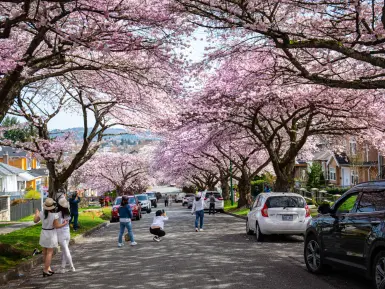
Why Visit Vancouver in Spring 2026?


01/01/2026
As the winter rain fades and the days grow longer, Vancouver undergoes a truly spectacular transformation. Spring isn't just a season here; it is a city-wide celebration of life, colour, and outdoor adventure!
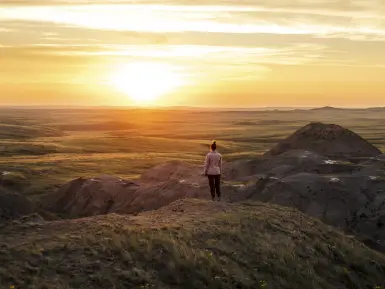
Saskatchewan Highlights: Discover the Land of Living Skies


12/11/2025
Often called the 'Land of Living Skies', Saskatchewan offers some of Canada's most unique and spectacular holiday experiences.
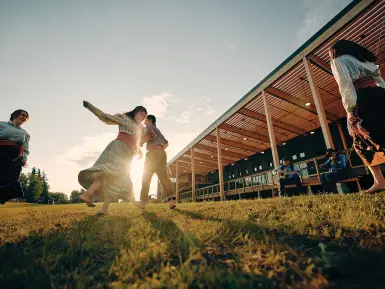
Indigenous Experiences in Alberta


31/10/2025
Alberta's Indigenous communities have shaped this province for thousands of years, creating a cultural tapestry that continues to thrive today.
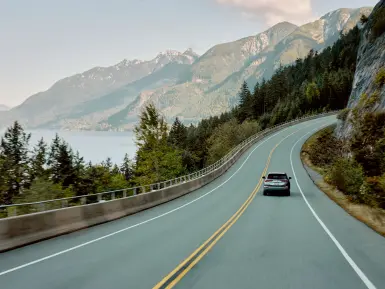
The Ultimate British Columbia Road Trip


17/10/2025
British Columbia offers some of Canada's most spectacular road trip routes, and this incredible 14-day journey through the province's diverse landscapes promises unforgettable memories.

